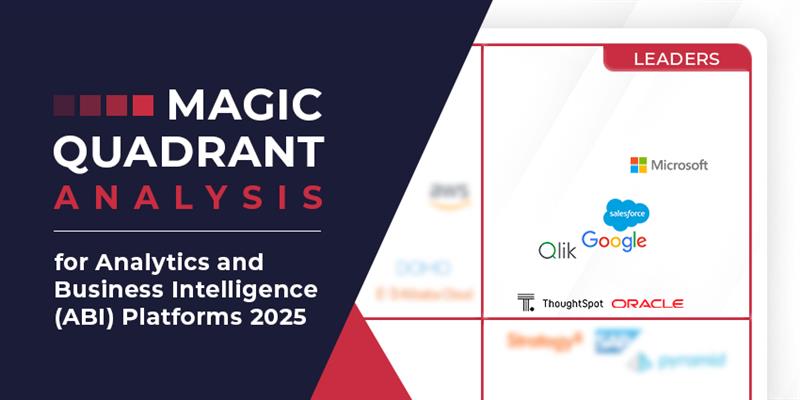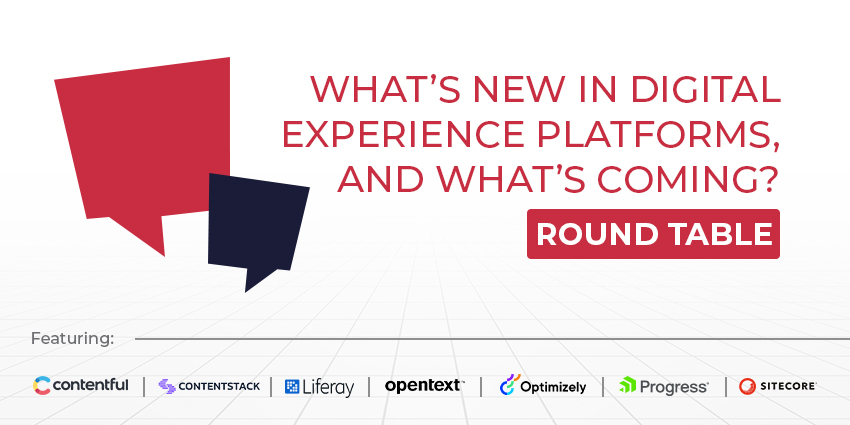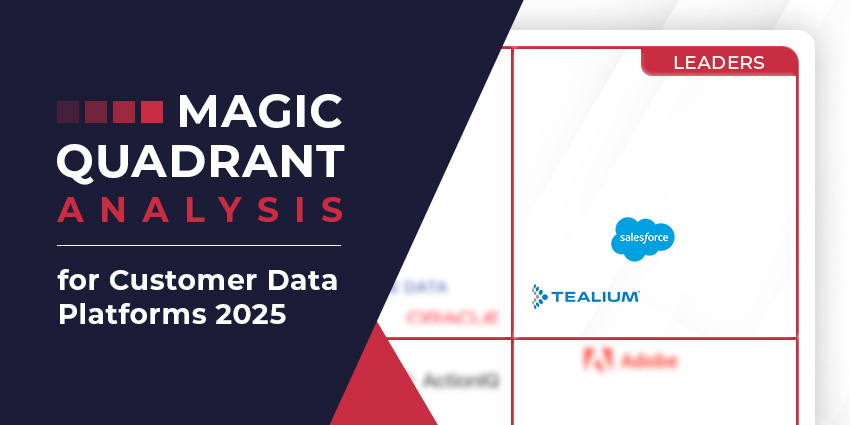The business intelligence (BI) and analytics landscape is constantly evolving. New players and established vendors are innovating to deliver products that take advantage of the latest advancements – like augmented analytics, self-service BI, etc.
To help stay ahead of the curve, here is the list of the leading BI and analytics vendors to watch out for in 2022.
-
Microsoft
Microsoft, a long-time leader in the space, offers a free Power BI desktop application that allows companies to connect hundreds of data sources cost-effectively across the organization. Yet, it also offers premium solutions, which push innovation much further. For example, Power BI premium now includes self-service, paving the way for relational database analytics. Such an initiative surfaces actionable insights from the data. Microsoft also stands apart due to its broad portfolio of analytics-based solutions, including visual-based data discovery.
-
Salesforce
After its Tableau acquisition in 2018, Salesforce became a significant player in the BI and analytics space, benefitting from an ecosystem that connects Tableau CRM with MuleSoft – a cutting-edge integration platform. These integrations enable seamless data journeys that supercharge its BI solution, acclaimed by the likes of Gartner for its ease of use. New Slack integrations will push this further, enabling new ways to share insights across the company and enhancing enterprise connectivity.
https://www.youtube.com/watch?v=YfE9jBq002s
-
Qlik
Qlik claims to be “the only end-to-end real-time data integration and analytics cloud platform.” Such a concept sits at the heart of its BI solution, known as the Qlik Active Intelligence Platform. Utilized by more than 38,000 companies, the solution offers sophisticated data and analytics services, including intelligent alerts that highlight sudden changes and outliers in business data. Such alerts may trigger instant action. Many leading functionalities – like these real-time notifications – seem to stem from its 2021 acquisitions of NodeGraph and Big Squid.
-
Domo
Known for its intense consumer focus and lightning speed to deployment, Domo is a significant player within the BI space. Its no-code/no-code philosophy is very much the driving force as it enjoys the wave of companies looking to accelerate time to insight and – in the process – digital transformation. Perhaps this is why Domo attracts a client base that includes the likes of Unilever, Cisco, and eBay.
-
Google
While it perhaps cannot yet match the BI capabilities of Microsoft and Salesforce, Google is a disruptive force across almost every market it enters. Its 2019 acquisition of Looker proved a clear signal of intent in the BI space, with its functionalities a central part of the Google Cloud Platform (GCP) ecosystem. This ecosystem now boasts impressive in-database architecture and governance features, which support next-generation custom applications and data workflows.
-
IBM
IBM offers a wide range of data and analytics services. Its flagship business intelligence and analytics platform is the AI-powered Cognos Analytics. Cognos supports the complete data analytics lifecycle, from discovery through operationalization, cleaning and linking data, providing attractive visualizations, and creating innovative data forecasts. Also, IBM benefits from its leading consultancy services, as its team works closely with clients to build a roadmap for applying analytics throughout the enterprise.
-
Oracle
Oracle has innovated heavily in the BI and analytics space over the past 18 months, releasing new features that include Code Innovate Cloud Coach to its Oracle Analytics Cloud (OAC) platform. These solutions showcase the intense consumer focus that exists at Oracle as they strive to enhance ease of use. Indeed, companies can even harness data visualization extensions to create more compelling stories that will connect the enterprise and encourage collaboration that results. Finally, users may also derive answers to predictive and statistical questions, ensuring that every department draws value from the solution.
Do you agree with our choices of leading BI vendors? See which providers Gartner advocates for in our rundown of its 2022 Magic Quadrant for Analytics and Business Intelligence Platforms







